Why I Travel
The Impact of Exploring the World
Article and photos by Lies Ouwerkerk
Senior Contributing Editor
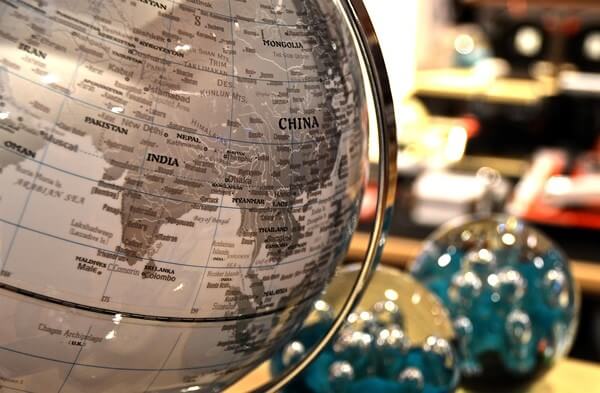
|
|
Desk globe. Photo by PIRO4D.
|
When I was a kid growing up in post-war Amsterdam, we had a small desk globe at home that would eventually lead to a lifelong traveling career. It was an era in which cars, phones, TV, and airplanes were still alien to us, and toys were few and far between, so playing tag or ring and run with my brothers was the order of those days.
But when it rained, we would gather around that globe, with radio tunes of the Glenn Miller band or Edith Piaf in the background. Taking turns, we would let the globe spin fast, then stop it with one finger and guess which country we were pointing at. If you wanted to win the game, you best knew world geography.
Names like Bolivia, Mongolia, Egypt, or Greece would feed my wildest fantasies and cause me to dream away while gazing at the big world map in school instead of focusing on what was really going on. I vowed that one day, I would truly make it to those lands.
Thanks to my never-wavering wanderlust in the years that followed, I made many of those childhood dreams indeed come true. Although reality did not often match the fantasies, I did get to admire Mongolia’s landscapes, Bolivia’s salt plane, Nubia’s pyramids, and the ancient temples of Greece.
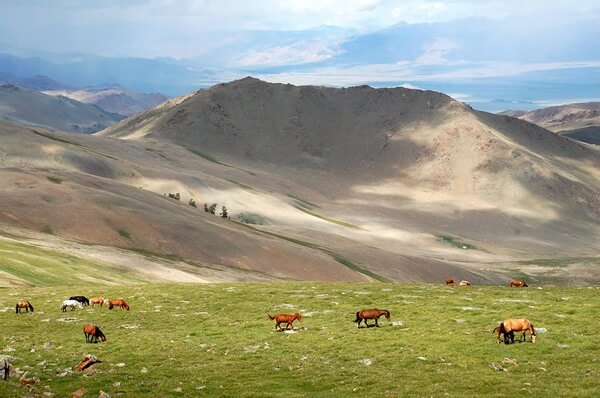
|
|
Mongolian landscape.
|
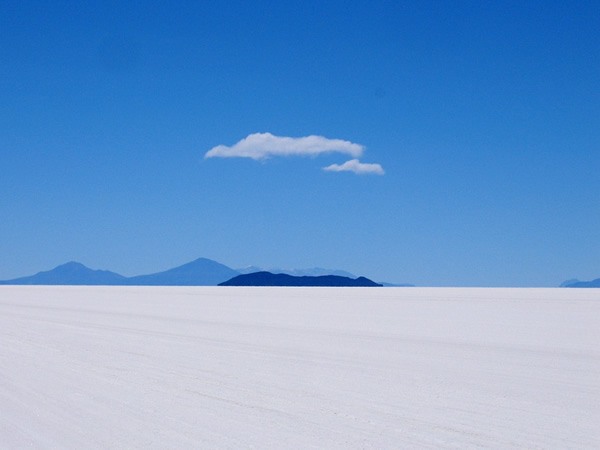
|
|
Bolivia salt plain. Photo by jstarj.
|
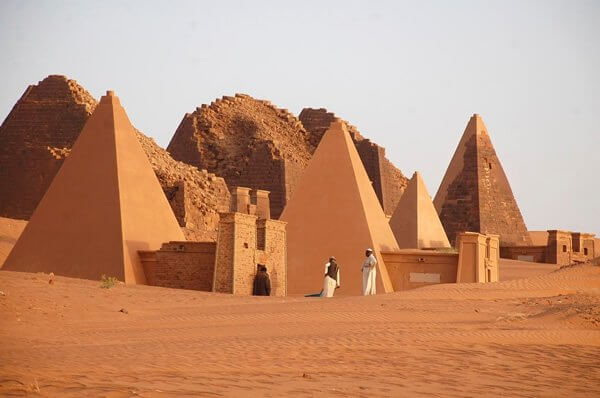
|
|
Nubian pyramids in North Sudan.
|
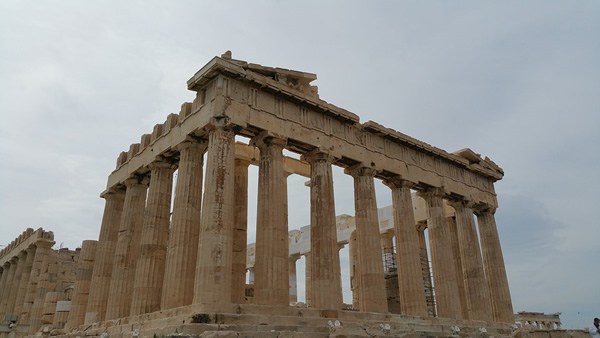
|
|
A temple in the Acropolis, Athens, Greece. Photo by waldomiguez.
|
Adventure
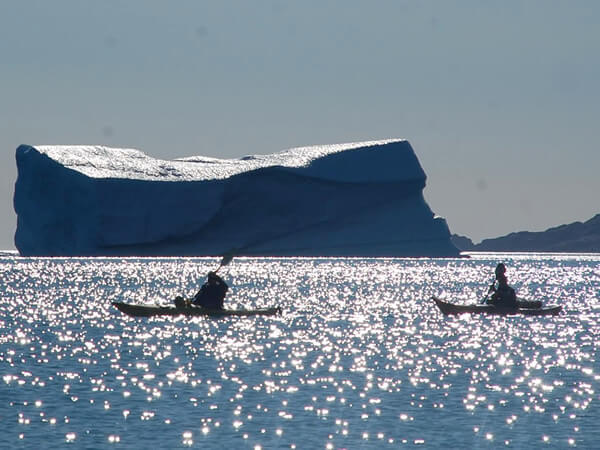
|
|
Adventures included using paddling boats near a spectacular iceberg in the Arctic.
|
Multiple means of transportation added adventure to my travels: I hitchhiked through Europe when it was still relatively safe, and highways did not yet exist. I drifted per icebreaker through the Arctic, on a sailing boat along remote islands of the Indonesian archipelago, and in a pirogue over Mali’s Niger River.
I traveled on camels’ backs through deserts in the Middle East, joined camping safaris in Namibia and Tanzania, trekked on foot through the mountains of Oman and Patagonia, and cycled through South Africa’s Cape and The Netherlands.
I also boarded the Trans Siberian Express, Japan's speedy bullet trains, overloaded buses in Burkina Faso, India, and Sulawesi, and 4x4s crossing the unchartered terrains of Kyrgyzstan, Vietnam, and China.
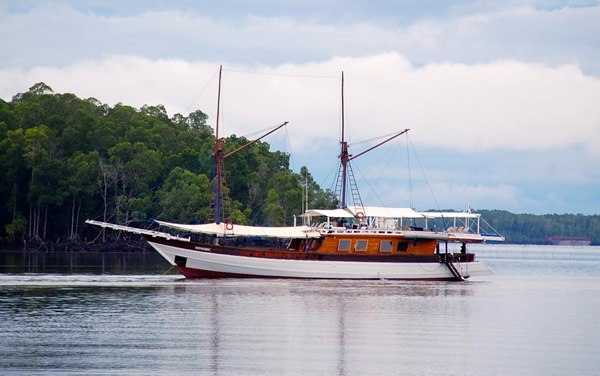
|
|
Aboard the Indonesian pinisi (sailboat) "Matahariku" along the coast of West Papua and remote islands of the Indonesian archipelago.
|
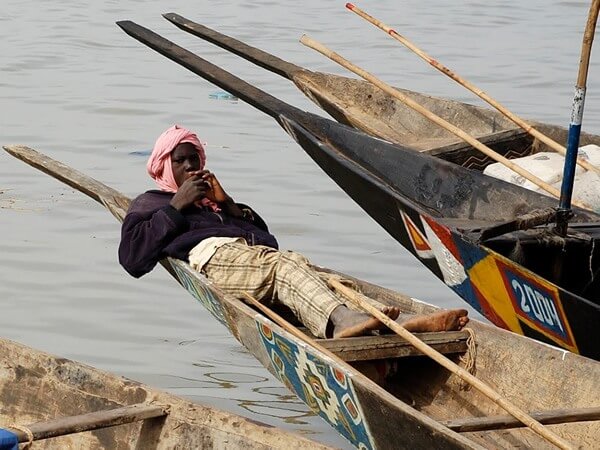
|
|
Pirogue boats in Mali.
|
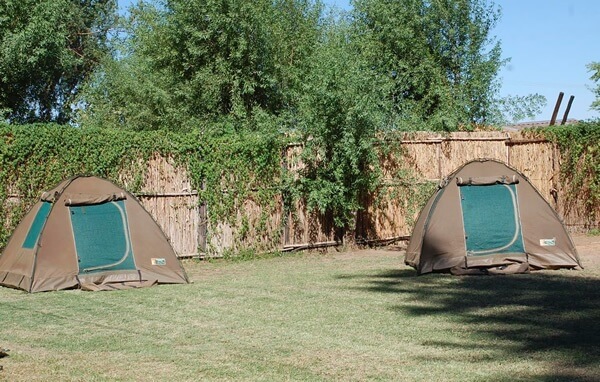
|
|
Camping in a tent in Namibia.
|
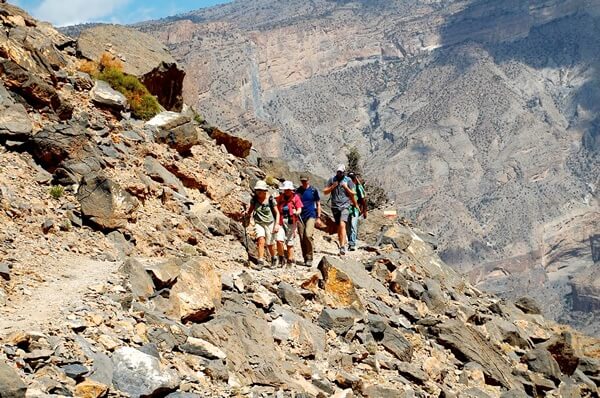
|
|
Trekking through the rocky hills of Oman.
|
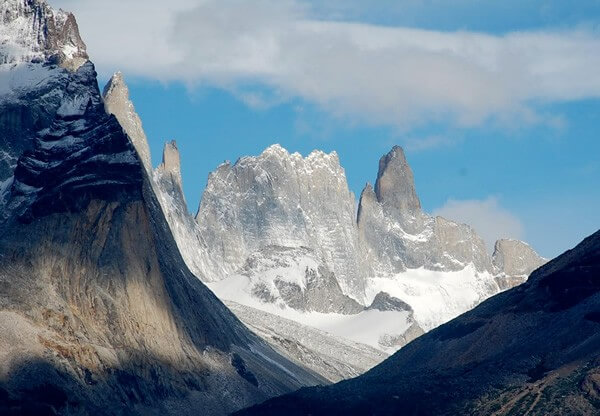
|
|
Hiking through Patagonia, Argentina, I saw dramatic mountain views.
|
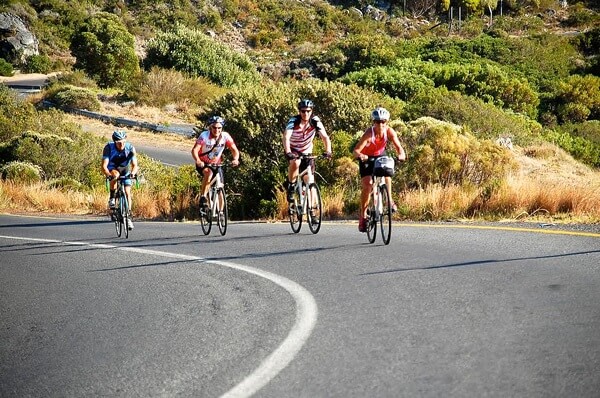
|
|
I cycled through South Africa.
|
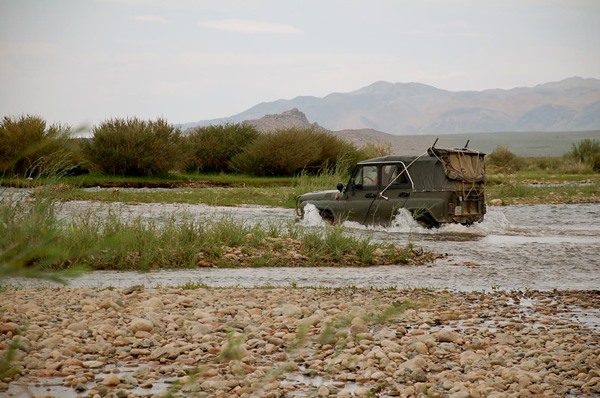
|
|
At times, I would drive in a 4x4 in Mongolia.
|
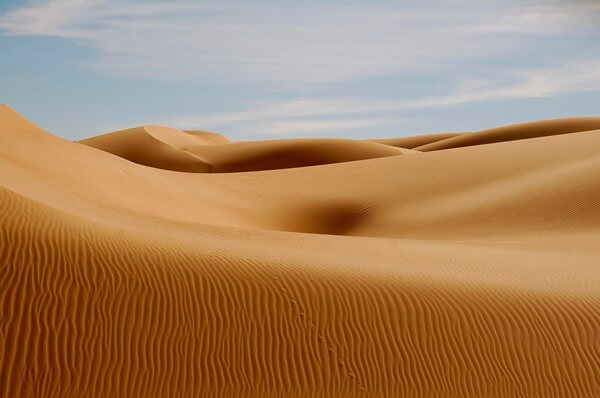
|
|
In Mauritania, I took a 4x4 through the desert.
|
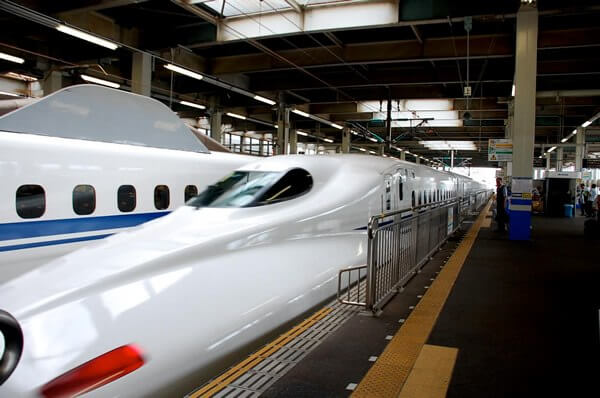
|
|
I sometimes traveled by bullet train in Japan.
|
Life Lessons
And yet, watching natural and man-made wonders and getting there in so many adventurous ways proved to be but a fraction of the wonder of traveling.
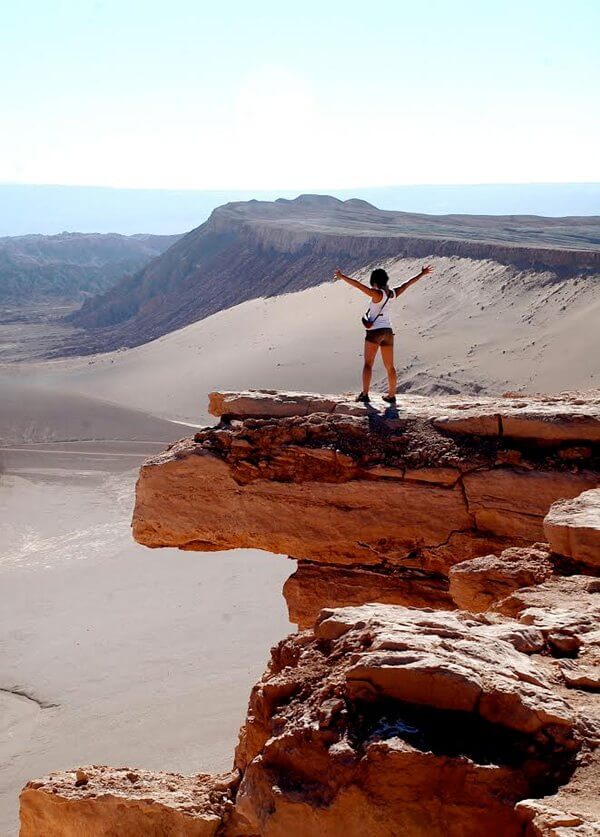
|
|
Atacama desert in Northern Chile.
|
Once I regularly traveled around the globe, it dawned on me that my journeys were not so much about myself, the incredible photographs and cool stories I could bring home, but more importantly, about the people I met and with whom I broke bread.
I started listening better, watching more carefully, and reaching out to locals more often when something slowly shifted: I stopped comparing and seeing my own country, the customs in which I had grown up, and myself as the center of the universe. I began to appreciate people in their own right. The great French author Marcel Proust remarked a century ago: “the real voyage of discovery consists not in seeking new lands, but in seeing with new eyes.”
When I listened to stories about survival in barren winters by Mongolian herders or Greenland’s fishermen, witnessed the joy and excitement of a small Malian community huddled around a crackling TV to watch Obama’s inauguration, received a warm and unconditional welcome in one of Myanmar’s bush villages or a favela in Rio, or met little veiled Yemeni girls fetching water or herding goats instead of playing with peers and going to school, a myriad of new worlds would open up to me.
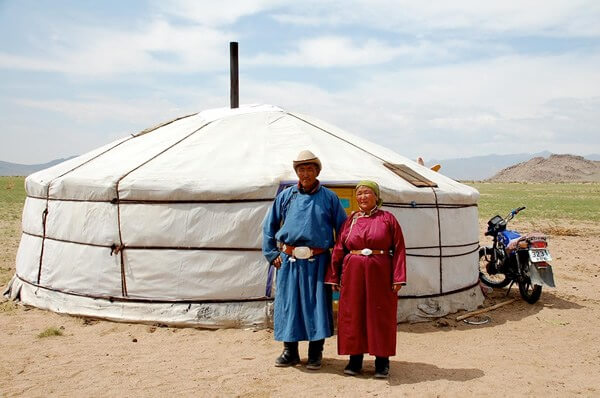
|
|
Visiting nomads and their ger, Mongolia.
|
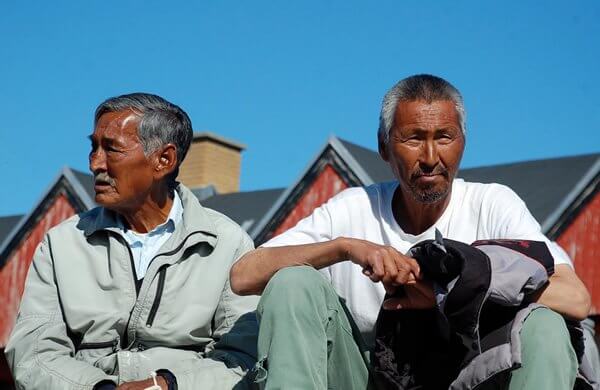
|
|
Local men are relaxing in a fishing village in Greenland.
|
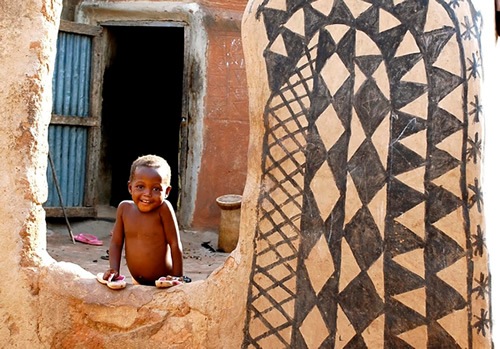
|
|
Little boy greeting me at a traditional dwelling in Burkina Faso.
|
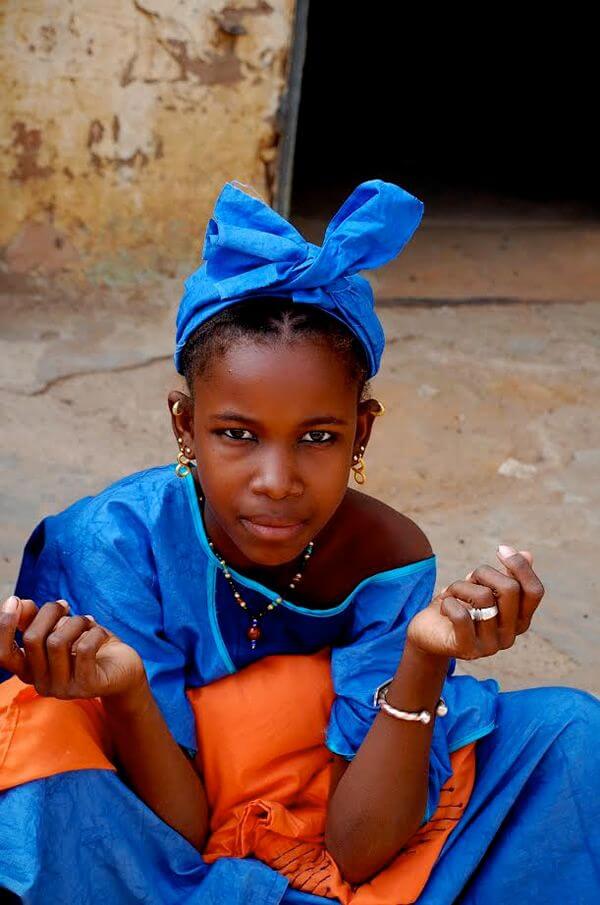
|
|
Girl at a market in Mali.
|
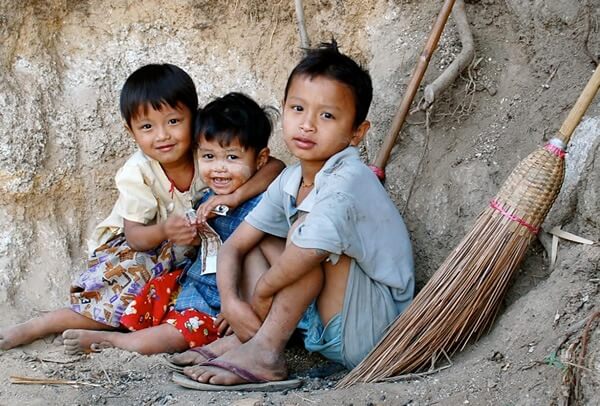
|
|
Curious children in a village in Myanmar.
|
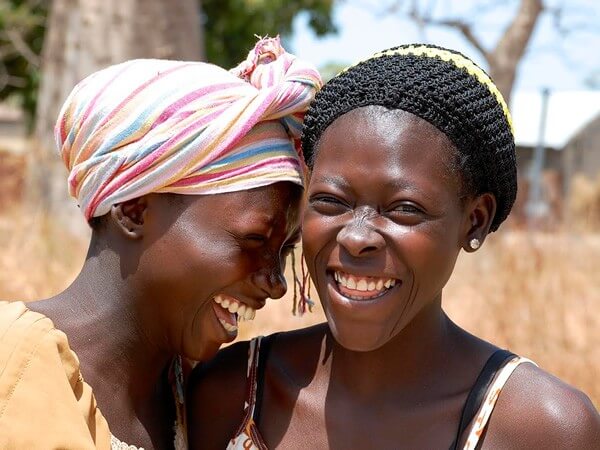
|
|
Giggling girls in the Gambia.
|
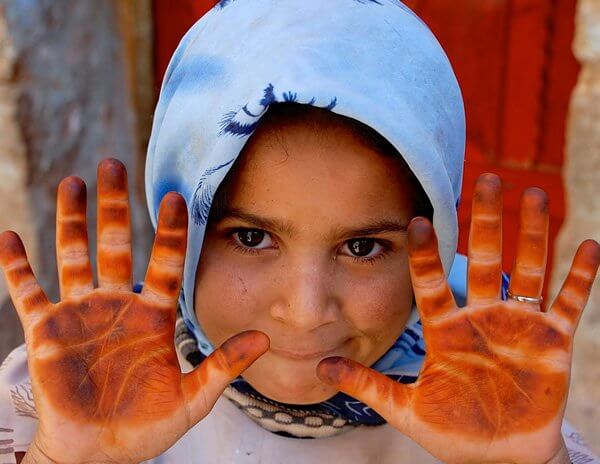
|
|
Girl in Yemen.
|
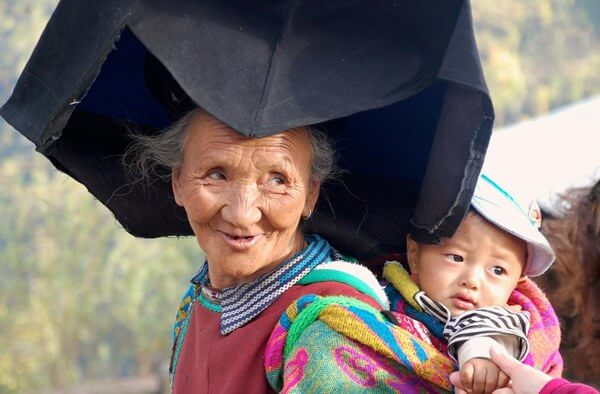
|
|
Yi woman in China with a child.
|
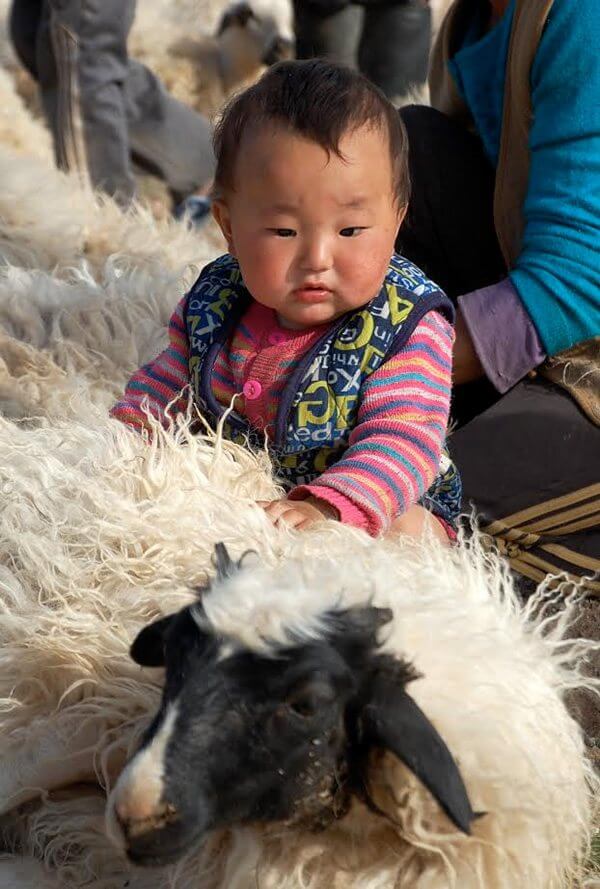
|
|
Girl in Mongolia pets a sheep, just minutes before the shearing.
|
Staying among people from those many different worlds has utterly moved and humbled me. It has made me value what I have on my turf and realize how immensely privileged we are in our free societies. But it has also made me more aware of how spoiled we can be, how much we can take our riches for granted, how little we seem to care about the other 80% of the world, and how wrapped up we can get caught up in our rat race and pettiness.
Understanding people in their own context and seeing the world through their lenses has become an invaluable life lesson for me, not only in my private life but also in my practice working with people from all corners of the world in the multicultural city where I currently live.
Equally valuable have been other, more practical skills acquired or improved along the way: communication and people skills, confidence, independence, dealing with the fear of the unknown and doing it anyway, going it alone, making myself understood in foreign languages, rolling with whatever challenges are coming my way; pitching and breaking down tents; navigating airports and bus terminals; being street-smart and practicing caution; packing lightly and efficiently; budgeting and making ends meet; learning about photography and foreign foods. Traveling generates empowerment, inspiration, and perpetual learning.
Home Stays
If time permits, I stay in one place for quite some time and try to live a slice of local life. I frequent shops, markets, and cafés. I partake in activities where I can meet locals.
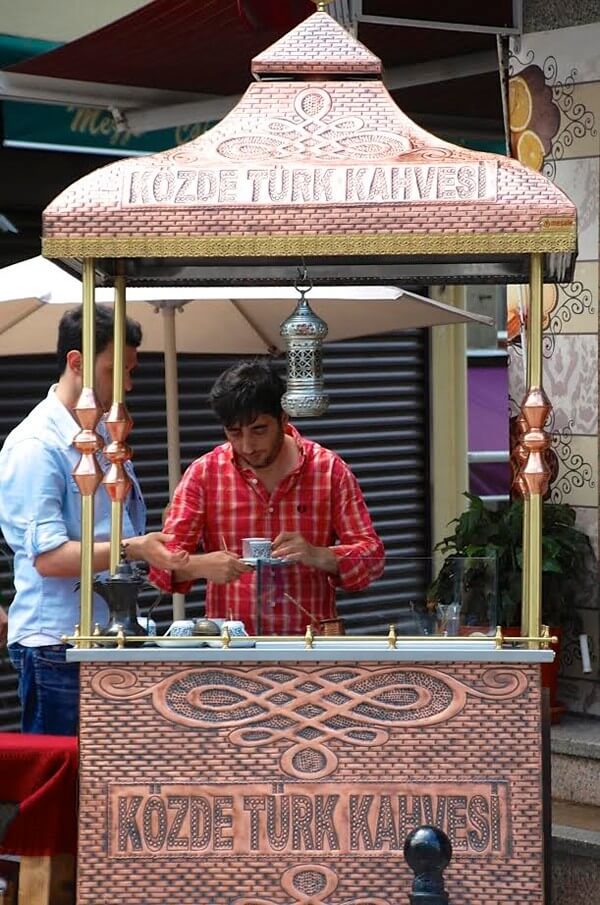
|
|
A typical coffee stall in Istanbul.
|
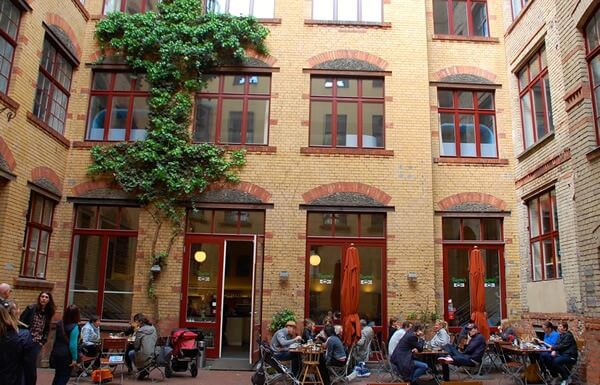
|
|
A restaurant in a restored courtyard in Mitte, a neighborhood in Berlin full of places to enjoy foods with locals from many regions of the world.
|
Sometimes, I get invited into their homes, which is a great way to get a feel for their beliefs, what makes them tick, what kind of birth, courting, wedding, and funeral practices they adhere to, how they make a living, and raise their children, what major sports they play, how they eat, or how they see the world. Despite the differences, we still have a lot in common regarding hopes, dreams, needs, and fears, and I often find confirmation that there is inherent goodness in most people around the globe.
Home stays and Airbnbs suit me well. I research prospective homes for hospitality, cleanliness, and location and carefully read the accompanying reviews. Only a very small percentage of hosts are solely driven by profit; the majority gladly open their homes to meet foreigners. Some have also opened their kitchen or their hearts and have become not only lasting memories but also lasting friends. Now, that’s what I call added value!
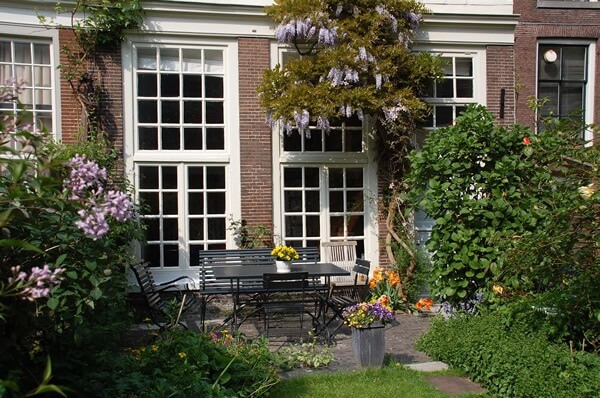
|
|
Garden apartment rental in Amsterdam.
|
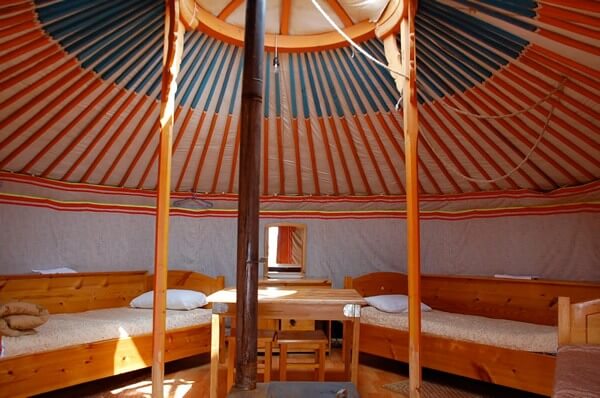
|
|
Inside a ger in Mongolia.
|
Food
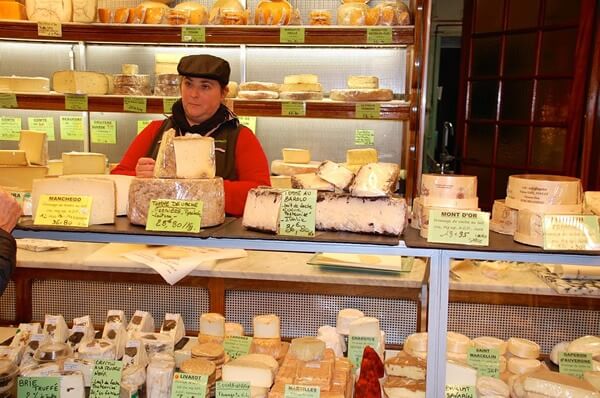
|
|
A typical fromagerie (cheese shop) in Paris.
|
Sharing food is a wonderful social activity and a great pastime — especially when you are love to eat, and it also provides insight into people’s lives. In Mauritania, I once attended a family dinner with my feet wrapped in plastic bags after the ladies of the house had carefully painted them with henna during the welcome ceremony. Seated in a circle on the floor, we all ate from one pot, each digging in with our hands. On the other hand, during meals in Japan and Indonesia, every person had an innumerable amount of little bowls and plates for themselves. The one thing I have never witnessed abroad is eating in front of a TV with a plate on one’s lap while communicating with each other via the screen in front.
Traveling makes you appreciate the many different cuisines you encounter, whether you experience them through a food tour, a cooking class, a restaurant, a market, or your host’s kitchen. Daily staples can be rice, pasta, couscous, or ugali. Vegetables can be the mainstay or remain completely absent. It can be an impressive meal with all the bells and whistles or a very simple one coming from the heart.
Whether you are in a developed or developing country does actually not say very much about the quality of the food. Recent studies have pointed out that Mali, Senegal, Chad, and Sierra Leone have the healthiest diets and that Belgium, Hungary, and the U.S. score lowest!
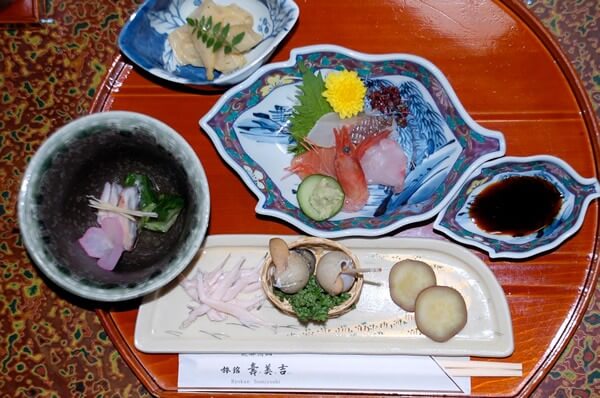
|
|
A meal in Japan where each person has their own bowls and utensils.
|
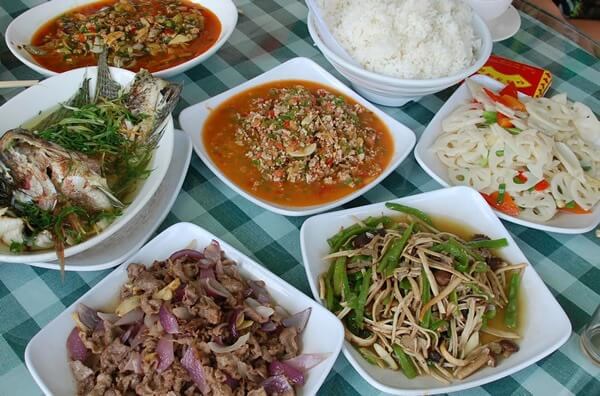
|
|
A shared meal in Yunnan, China.
|
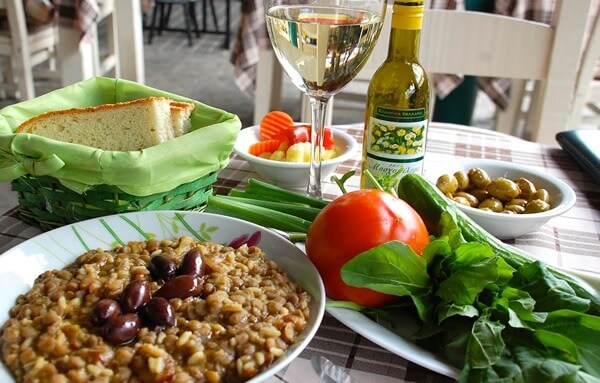
|
|
Fakes moutjentra in Cyprus: a delicious rice, lentils, and caramelized onions dish, simmered in vegetable broth.
|
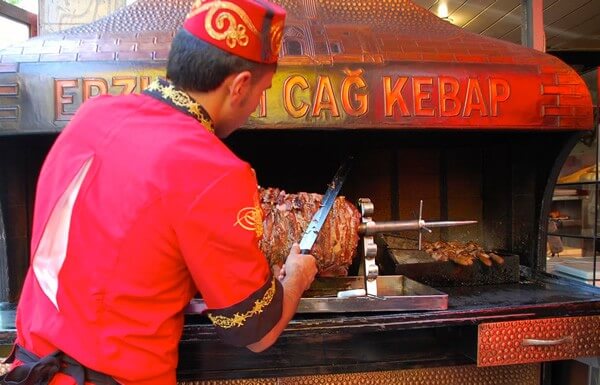
|
|
A cag kebap carved to eat by a street vendor in Istanbul.
|
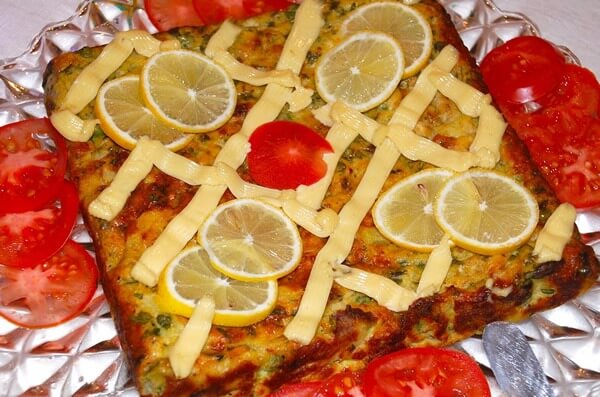
|
|
A Tunisian version of a tajine.
|
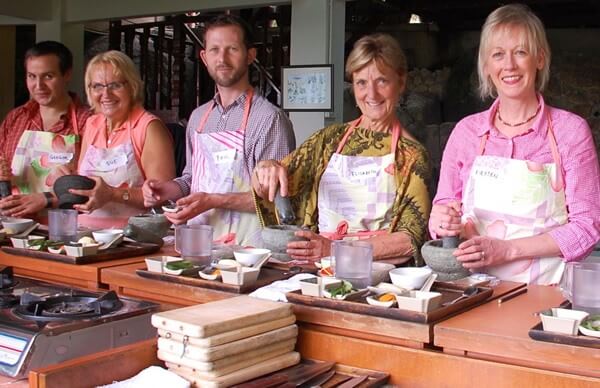
|
|
Making a meal at a cooking school in Kuala Lumpur.
|
Recharging Batteries
I would lie if my trips abroad do not also serve as an opportunity to replenish my energy and escape the long Canadian winters. I am passionate about my work as a therapist, but it certainly is a demanding job. After traveling abroad for some time, tasting the freedom of going anywhere I want, and living at my own pace in the here and now, I can happily look forward to seeing old and new clients again.
Breaking habits and routines keeps me convinced that life should not only be about work. There is so much more to live for than that busy, fast-paced life in which we too often take pride. Traveling teaches me to slow down and unplug, to become aware of what matters, and to appreciate the smaller things of life that can often be so meaningful.
Perspectives can change during a journey. For instance, what seems too much routine before I take off can miraculously become pleasant and soothing upon return. A quote from British novelist and travel writer Pico Iyer reads: “we travel, initially, to lose ourselves; we travel, next, to find ourselves.”
I have come a long way since my initial fascination with that small desk globe, not only in miles but also in personal development. And yet, so much remains to be discovered!
“I have not been everywhere,” writer and activist Susan Sontag once said, “but it is on my list!” As for my list, my travel bug does not seem to go away soon, so I will pack my bags again shortly.
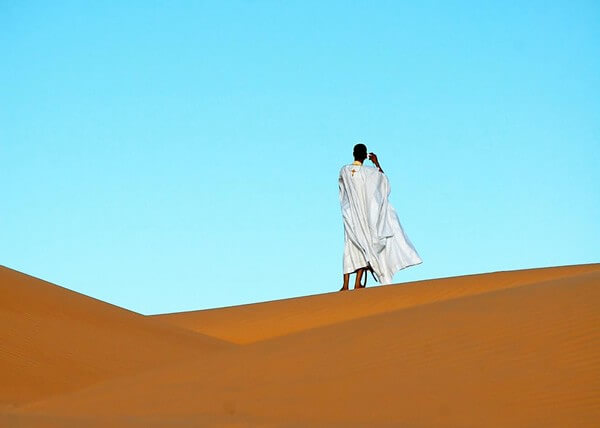
|
|
Onward to another destination...
|
Lies Ouwerkerk is originally from Amsterdam, The Netherlands, and currently lives in Montreal, Canada. Previously a columnist for The Sherbrooke Record, she is presently a freelance writer and photographer for various travel magazines.
|
